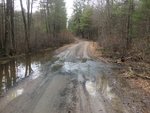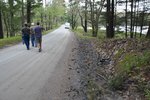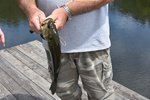 Narrowsburg
NarrowsburgLight Rain Fog/Mist, 43°
Wind: 8.1 mph
 Narrowsburg
NarrowsburgDoes a dirt road have any bearing on the well-being of a fish? It might surprise you to learn that it does—enough to warrant the attention and activism of Trout Unlimited (TU), a leading …
Stay informed about your community and support local independent journalism.
Subscribe to The River Reporter today. click here
This item is available in full to subscribers.
Please log in to continue |



Does a dirt road have any bearing on the well-being of a fish? It might surprise you to learn that it does—enough to warrant the attention and activism of Trout Unlimited (TU), a leading nonprofit organization dedicated to the conservation of freshwater streams, rivers and associated habitats for trout, salmon and other aquatic species.
Pennsylvania’s network of rural roads and the stormwater runoff that can occur when they develop problems or are poorly maintained leads to sedimentation—identified by the Environmental Protection Agency as the most common pollutant in rivers, streams, lakes and reservoirs.
Sediment that is ultimately deposited in such water bodies can clog fish gills, lower growth rates and affect fish egg and larvae development. Settling on the stream bottom, it also impacts habitat for aquatic insects, which are a crucial food source in healthy trout streams. Sediment can also smother insect larvae and fish eggs and destroy spawning areas for fish.
Aware of these harmful impacts, TU helped to launch Pennsylvania’s Dirt, Gravel and Low Volume Road Program (DGLVR) in conjunction with Penn State University’s Center for Dirt and Gravel Roads, the State Conservation Commission and local conservation districts that administer and implement the program at the county level.
The goal of the DGLVR program is to reduce pollution to nearby streams while improving rural road networks. Funding is directed to worksites where road runoff is affecting the water quality of a nearby stream. Conservation districts accept applications for funding from potential applicants and award grants to local road-owning entities. District staff work with grant applicants to develop and oversee projects.
Both local conservation districts are accepting applications for future DGLVR projects on a rolling basis. Any state or local public entity that owns and maintains public roads is eligible to apply for funding. For more information, contact Christopher Ingulli of the Pike County Conservation District (PCCD) at 570/226-8220 or cingulli@pikepa.org; contact Jamie Knecht of the Wayne Conservation District at 570/253-0930 or jknecht@waynecountypa.gov. Visit www.dirtandgravel.psu.edu/pa-
program-resources for additional resources and information related to Pennsylvania’s DGLVR program.
In addition, PCCD normally conducts an annual road maintenance workshop, but like so many other events impacted by the ongoing pandemic, this year’s recent workshop went virtual. For those who missed it, resources from the workshop are being made available on the PCCD website at www.pikeconservation.org.
Comments
No comments on this item Please log in to comment by clicking here